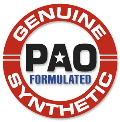
VALVOLINE SETTLES
CHARGES
Engine Wear, Fuel Economy,
Performance Claims
For Valvoline TM8 Engine Treatment Were Unsubstantiated, FTC Alleges
Ashland, Inc. has agreed to settle Federal Trade Commission charges that ads for the Valvoline Company's Teflon-containing TM8 Engine Treatment product were false and unsubstantiated. Valvoline is an unincorporated division of Ashland. The terms of the settlement will bar Ashland from making unsubstantiated claims about the performance or attributes of any engine treatment in the future and from misrepresenting tests or studies used to support its claims.
This is the latest in a series of FTC cases involving unsubstantiated or false claims for automotive additives and high octane fuels.
Ashland is a Fortune 500 company with 1996
revenues of $13.1 billion. It markets automotive products under the brand names
Valvoline, Pyroil and Zerex. Ashland is based in Russell, Kentucky.
According to the complaint detailing the charges, ads for TM8 Engine Treatment made claims such as:
"TM8 is a blend of eight scientifically formulated components -- including Dupont's TEFLON fluoroadditive-- that chemically bond to engine surfaces, reducing engine friction and wear";
"TM8's 8 friction-fighting ingredients chemically bond to moving parts, protecting your engine even at start-up. In fact, under high operating temperatures, motor oil treated with TM8 offers twice the protection";
"REDUCE WEAR BY UP TO 75%. TM8 protects engines during "Stop and Go" driving."
Through the use of such claims in ads that ran on radio and TV, magazines, leaflets and on an Internet site, Valvoline represented that TM8 bonds Teflon to engine parts; that compared to motor oil alone, it reduces engine wear; that it reduces wear on some engine parts by up to 75 percent; that it provides twice as much engine wear protection under high temperature conditions; that it extends engine life; that it improves fuel economy; and that one treatment lasts for 50,000 miles.
In addition, according to the complaint, some ads claimed that "testing" demonstrated that compared to motor oil alone, TM8 reduces wear on engine parts by up to 75%, provides twice the wear protection under high temperature conditions, and improves fuel economy.
In fact, according to the complaint, Ashland did not possess and rely upon a reasonable basis to make the ad claims, so they were unsubstantiated. In addition, tests do not prove that, compared to motor oil alone, TM8 reduces wear on engine parts by up to 75%, provides twice the wear protection under high temperature conditions, and improves fuel economy. Therefore, the "testing" claims are false and misleading.
The agreement to settle the charges would prohibit Ashland from making any claims about the performance or attributes of any engine treatment unless it possesses and relies upon competent and reliable evidence to support the claims. It also bars misrepresentations of the results of any tests or studies.
The order also contains standard record-keeping provisions to allow the Commission to monitor compliance.

